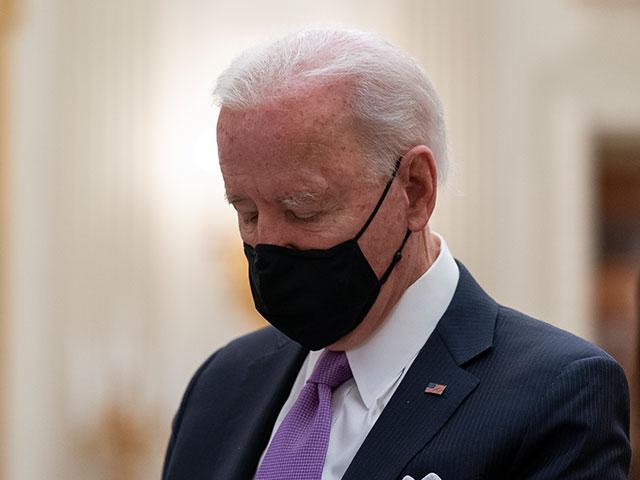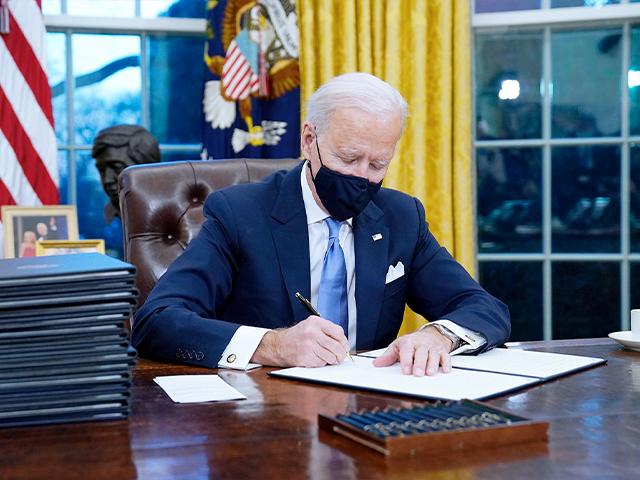President Biden hopes to reinvigorate the war on COVID-19 with plans to boost vaccinations and a burst of executive orders.
On Thursday, he called the vaccine rollout so far a "dismal failure" and blamed the Trump administration for not acting with more urgency and coordination. President Trump had created Operation Warp Speed which surpassed many expectations by helping produce multiple vaccines in record time.
"We didn't get into this mess overnight," Biden said. "It's going to take months for us to turn this around. But let me be equally clear—we will get through this. We will defeat this pandemic."
The CDC says that just 2.4 million people have received the needed two doses of the vaccine, with hundreds of millions of doses necessary to end the outbreak.
On Thursday, Biden signed ten executive orders to fight the pandemic.
One expands vaccine production. Others mandate masks for travel, lay the groundwork for re-opening schools and businesses and order FEMA to set up vaccination centers. Next month, the CDC will make vaccines available in pharmacies.
Biden is promising 100 million vaccinations in his first 100 days in office. That sounds good although it's just a ten percent increase over the current daily pace.
After Biden signed the executive orders Thursday, an Associated Press reporter asked him if his target should be more ambitious, a point pushed by some public health experts.
"You set the goal at 100 million vaccines in the first 100 days -- is that high enough?" reporter Zeke Miller asked. "Shouldn't we set the bar higher? That's basically where the U.S. is right now."
"When I announced it you all said it's not possible," said Biden. "Come on, give me a break, man. It's a good start, 100 million."
Biden's new chief medical advisor, Dr. Anthony Fauci, says the coveted herd immunity, where a large percentage of the population is naturally immune to the virus, could be achieved later this year.
"The best-case scenario, if it were for me, is that we'd get 85 percent of the people vaccinated by the end of summer," he said Thursday.
The other big concern is new mutations of the virus in the United Kingdom and South Africa.
Scientists wonder if one mutation in California is behind the surge in cases in Los Angeles and if some of these mutations could weaken the effectiveness of the vaccines.
One study says the South Africa variant could pose a problem for the vaccines.
But Fauci and other experts believe the mutations won't significantly decrease the vaccines' effectiveness, although more research is still needed.
Since the mutations are more contagious however, they could lead to a faster spread of the virus and that increases the urgency to get as many people vaccinated as soon as possible.
Did you know?
God is everywhere—even in the news. That’s why we view every news story through the lens of faith. We are committed to delivering quality independent Christian journalism you can trust. But it takes a lot of hard work, time, and money to do what we do. Help us continue to be a voice for truth in the media by supporting CBN News for as little as $1.











 Support CBN News
Support CBN News









